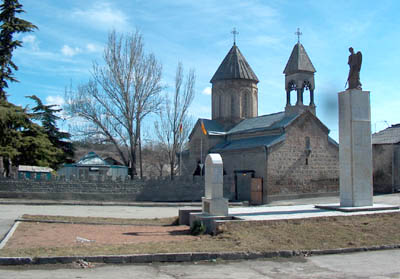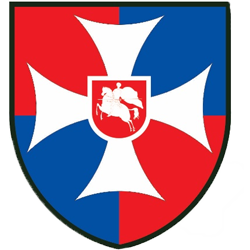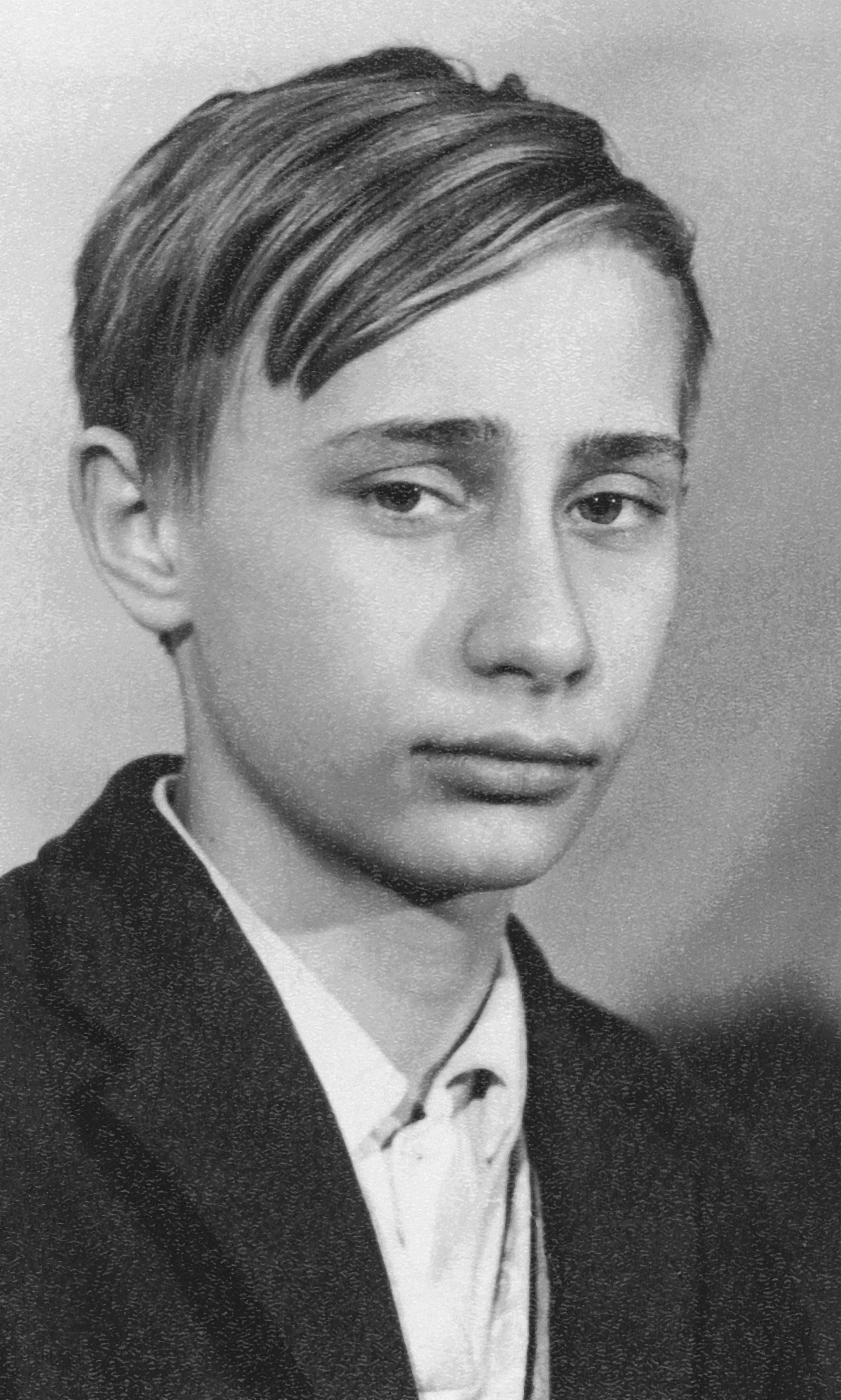|
Armed Forces Of South Ossetia
The Armed Forces of South Ossetia is the military of the partially recognised state of South Ossetia. It includes an Army and an Air Corps. The South Ossetian Army was formed in 1992, and is the primary defense force in the breakaway republic of South Ossetia, largely considered to be within internationally recognized Georgian territory. According to the 2017 agreement with Russia, parts of the South Ossetian forces were integrated with Russia's 4th Guards Military Base stationed in the territory, while the size of the entity's remaining military is to be agreed with the Russian authorities. History The Ossetian Republican Guard () was organized on 15 November 1991 to participate in the defence of the national capital of Tskhinvali. Just a week later, Georgian President Zviad Gamsakhurdia ordered over 10,000 soldiers to the republic. When it was created, it was mostly a loosely organized group of guerillas. It was a participant in the 1991–1992 South Ossetia War, providin ... [...More Info...] [...Related Items...] OR: [Wikipedia] [Google] [Baidu] |
Tskhinvali
Tskhinvali ( ka, ცხინვალი ) or Tskhinval (, ; , ) is the capital of the disputed ''de facto'' independent Republic of South Ossetia, internationally considered part of Shida Kartli, Georgia (except by Russia and four other UN member states). Tskhinvali Region, known historically as Samachablo, was traditionally part of the Georgia as a single military and administrative entity. It is located on the Great Liakhvi River approximately northwest of the Georgian capital Tbilisi. Name The name of Tskhinvali is derived from the Old Georgian ''Krtskhinvali'' ( ka, ქრცხინვალი), from earlier ''Krtskhilvani'' ( ka, ქრცხილვანი), literally meaning "the land of hornbeams", which is the historical name of the city. See ცხინვალი for more. From 1934 to 1961, the city was named Staliniri ( ka, სტალინირი, ), which was a compilation of Joseph Stalin's surname with Ossetian word "Ir" which means Ossetia. ... [...More Info...] [...Related Items...] OR: [Wikipedia] [Google] [Baidu] |
National Guard Of Georgia
The National Guard of Georgia (GNG, ka, საქართველოს ეროვნული გვარდია, ''sak'art'velos erovnuli gvardia'') is the gendarmerie, guard of honour, and military reserve force branch of the Defense Forces of Georgia. It is tasked with responding to civil affairs, civil disorders, external threats, important ceremonial duties, internal security, natural disasters crisis, public security, and support military operations. History Establishment The GNG was established on December 20, 1990 after President Zviad Gamsakhurdia ordered the creation of what is now the Defense Forces of Georgia. In January 1991, Soviet President Mikhail Gorbachev, through the chairman of the Supreme Soviet, Anatoly Lukyanov, instructed Gamsakhurdia to ban the creation of the Guard. The official newspaper of the Soviet Army, '' Krasnaya Zvezda'', published an article mocking the National Guard entitled "Mr. Prefects and Mr. Guardsmen." The first military ... [...More Info...] [...Related Items...] OR: [Wikipedia] [Google] [Baidu] |
EurasiaNet
Eurasianet is a news organisation based at Columbia University's Harriman Institute, the United States, that provides news, information and analysis on countries in Central Asia, the Caucasus region, Russia and Southwest Asia. Launched in 2000, it operated under the auspices of the Eurasia Project of the Open Society Foundations (OSF). Eurasianet spun off in 2016 to become a tax-exempt non-profit news organization. The organisation receives support from Google, OSF, the Foreign, Commonwealth and Development Office, the Arnold A. Saltzman Institute of War and Peace Studies, the National Endowment for Democracy and other grant-making institutions. Eurasianet has won EPpy Awards for its special feature website on the Kyrgyz Revolution Revisited (2007) and for Best News website with under 250,000 monthly visitors (2011). It has also received numerous citations from the Webby Awards The Webby Awards (colloquially referred to as the Webbys) are awards for excellence on the Inte ... [...More Info...] [...Related Items...] OR: [Wikipedia] [Google] [Baidu] |
Leonid Tibilov
Leonid Kharitonovich Tibilov (; ; ka, ლეონიდ თიბილოვი, Leonid Tibilovi; born 28 March 1951) is a South Ossetian politician who served as the third president of South Ossetia from 2012 to 2017 after winning the 2012 South Ossetian presidential election. Career Leonid Tibilov headed the South Ossetian KGB as South Ossetia's Security Minister from 1992 to 1998. He was then a first deputy prime minister and co-chaired a Georgia (country), Georgian-Ossetian peacekeeping commission. Tibilov stood at the 2006 South Ossetian presidential election, 2006 presidential election losing to Eduard Kokoity, who won 98% of the vote. Before the 2012 election Tibilov distanced himself from the outgoing President of South Ossetia, President Kokoity. Tibilov is reported to be subservient to Russia and pledged to consult Russia before appointing a government if he was successful at the election. In the first round of the 2012 Presidential election, Tibilov received 42.5% ... [...More Info...] [...Related Items...] OR: [Wikipedia] [Google] [Baidu] |
President Of South Ossetia
The president of the Republic of South Ossetia (, ) is the ''de facto'' head of state of the International recognition of Abkhazia and South Ossetia, partially recognized South Ossetia, Republic of South Ossetia that is ''de jure'' part of Georgia (country), Georgia. This is a list of the ''de facto'' presidents of the Republic of South Ossetia and the holders of the precursor to the office. List of officeholders Non-presidential heads of state List of presidents of South Ossetia Timeline Latest election See also * Government of South Ossetia * Prime Minister of South Ossetia * Minister of Foreign Affairs (South Ossetia) References External links Official website PlanetRulers.com: President of South Ossetia South Ossetia Presidents by country, South Ossetia Government of Ossetia Presidents of South Ossetia, {{SouthOssetia-stub ... [...More Info...] [...Related Items...] OR: [Wikipedia] [Google] [Baidu] |
Russian Armed Forces
The Armed Forces of the Russian Federation, commonly referred to as the Russian Armed Forces, are the military of Russia. They are organized into three service branches—the Russian Ground Forces, Ground Forces, Russian Navy, Navy, and Russian Aerospace Forces, Aerospace Forces—two independent combat arms (the Strategic Rocket Forces and Russian Airborne Forces, Airborne Forces), and the Special Operations Forces (Russia), Special Operations Forces Command. The Russian Armed Forces are the List of countries by number of military and paramilitary personnel, world's fifth largest military force, with about one million Active duty, active-duty personnel and close to two million Military reserve force, reservists. They maintain the Russia and weapons of mass destruction, world's largest stockpile of nuclear weapons, possess the world's second-largest fleet of ballistic missile submarines, and are the only armed forces outside the United States Armed Forces, United States and Pe ... [...More Info...] [...Related Items...] OR: [Wikipedia] [Google] [Baidu] |
Parliament Of South Ossetia
The Parliament of South Ossetia is the unicameral legislature of the partially recognized Republic of South Ossetia. The 34 members of parliament are elected using a mixed system of Party-list proportional representation (17) and single-member districts (17). South Ossetia has a multi-party system, and currently 5 political parties are represented in parliament and has 6 independent MPs elected through single-member districts. The parliament is headed by a speaker, who is elected from among the members. Since 15 September 2022 the speaker of parliament is Alan Alborov, one of the four deputees of the Nykhaz party of president Alan Gagloev, after Alan Tadtaev of United Ossetia was forced to resign. History The parliament of South Ossetia meets in the capital Tskhinvali. The parliament building was built in 1937 as the Soviet of the South Ossetian Autonomous Oblast. On 10 November 1989, the Soviet of the South Ossetian AO requested the Soviet Union elevate the AO into an Au ... [...More Info...] [...Related Items...] OR: [Wikipedia] [Google] [Baidu] |
Russian General Staff
The General Staff of the Armed Forces of the Russian Federation () is the military staff of the Russian Armed Forces. It is the central organ of the military command of the Armed Forces Administration and oversees operational command of the armed forces under the Russian Ministry of Defence. As of 2012, the Chief of the General Staff is General of the Army Valery Gerasimov and since 2014, the First Deputy Chief of the General Staff is Colonel General Nikolay Bogdanovsky. The General Staff Building is located in Moscow at Znamenka Street 19 in the Arbat District. Together with the Main Building of the Ministry of Defense and several Staff directorate office buildings nearby, it forms the so-called "Arbat military district" as it is often referred to among the military personnel to outline the highest supreme command of the Russian Armed Forces. History The General Staff's history dates back to its creation as early as 25 January 1763 during the Russian Empire. The Day of the ... [...More Info...] [...Related Items...] OR: [Wikipedia] [Google] [Baidu] |
Vladimir Putin
Vladimir Vladimirovich Putin (born 7 October 1952) is a Russian politician and former intelligence officer who has served as President of Russia since 2012, having previously served from 2000 to 2008. Putin also served as Prime Minister of Russia from 1999 to 2000 and again from 2008 to 2012. He is the longest-serving Russian president since the independence of Russia from the Soviet Union. Putin worked as a KGB foreign intelligence officer for 16 years, rising to the rank of Lieutenant colonel (Eastern Europe), lieutenant colonel. He resigned in 1991 to begin a political career in Saint Petersburg. In 1996, he moved to Moscow to join the administration of President Boris Yeltsin. He briefly served as the director of the Federal Security Service (FSB) and then as Secretary of the Security Council of Russia, secretary of the Security Council of Russia before Putin's rise to power, being appointed prime minister in August 1999. Following Yeltsin's resignation, Putin became Actin ... [...More Info...] [...Related Items...] OR: [Wikipedia] [Google] [Baidu] |
President Of Russia
The president of Russia, officially the president of the Russian Federation (), is the executive head of state of Russia. The president is the chair of the State Council (Russia), Federal State Council and the President of Russia#Commander-in-chief, supreme commander-in-chief of the Russian Armed Forces. It is the highest office in Russia. The modern incarnation of the office emerged from the president of the Russian Soviet Federative Socialist Republic (RSFSR). In 1991, Boris Yeltsin was elected president of the RSFSR, becoming the first non-Communist Party member to be elected into a major Soviet political role. He played a crucial role in the dissolution of the Soviet Union which saw the transformation of the RSFSR into the Russian Federation. Following a series of scandals and doubts about his leadership, violence erupted across Moscow in the 1993 Russian constitutional crisis. As a result, a new constitution was implemented and the 1993 Russian Constitution remains in force ... [...More Info...] [...Related Items...] OR: [Wikipedia] [Google] [Baidu] |
Ethnic Cleansing Of Georgians In South Ossetia
Ethnic cleansing of Georgians in South Ossetia was a mass expulsion of ethnic Georgians conducted in South Ossetia and other territories occupied by Russian and South Ossetian forces, which happened during and after the 2008 Russia–Georgia war. Overall, at least 20,000 Georgians were forcibly displaced from South Ossetia. The Human Rights Watch concluded that the "South Ossetian forces sought to ethnically cleanse" the Georgian-populated areas.The Human Rights Watch (January 23, 2009)Up in Flames: Humanitarian Law Violations and Civilian Victims in the Conflict over South Ossetia pp. 3, 10, 125, 131. In 2009, the Parliamentary Assembly of the Council of Europe resolutions condemned "the ethnic cleansing and other human rights violations in South Ossetia, as well as the failure of Russia and the de facto authorities to bring these practices to a halt and their perpetrators to justice". According to the September 2009 report of the European Union-sponsored Independent Internatio ... [...More Info...] [...Related Items...] OR: [Wikipedia] [Google] [Baidu] |







